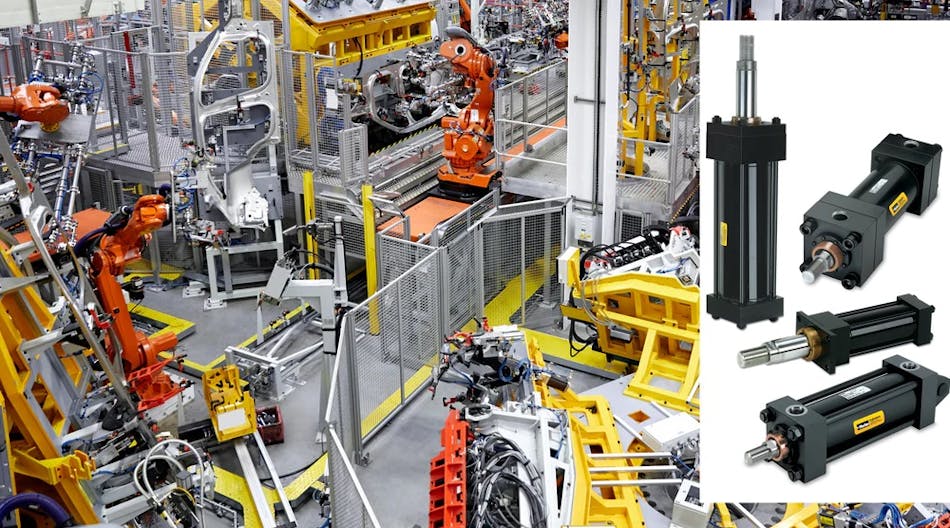Community, Leadership, Experimentation, Diversity, & Education
Pittsburgh Arts, Regional Theatre, New Work, Producing, Copyright, Labor Unions,
New Products, Coping Skills, J-O-Bs...
Theatre industry news, University & School of Drama Announcements, plus occasional course support for
Carnegie Mellon School of Drama Faculty, Staff, Students, and Alumni.
CMU School of Drama
Thursday, April 11, 2024
Specifying the Right Hydraulic Cylinder for the Right Job
Power & Motion: Hydraulic cylinders essentially convert fluid pressure and flow into force and linear motion. They are available in a wide range of styles, sizes, materials and configurations. Many OEM engineers play it safe by over-engineering cylinder specifications. But less can sometimes be more when it comes to complex hydraulics. Let’s first identify some of the key factors that should be considered when specifying hydraulic cylinders.
Subscribe to:
Post Comments (Atom)

3 comments:
One thing that was consistently repeated in this article was that an engineer should use standard, off-the-shelf parts whenever possible, rather than trying to engineer a product different from what is normally used. I think the article also impressed the idea that it is generally possible to make an off-the-shelf part work, even when it seems like you may need some kind of more special feature. The advantage of using common parts is that there has been extensive engineering work that has gone into understanding how this part will behave in a variety of circumstances, as well as determining exactly what its capabilities are. When using a standardized part it is also much easier to replace if it breaks or needs to be modified in some way. Specialized parts can solve special problems but are significantly more expensive because significantly more engineering needs to go into developing them and they can not be made at scale in the same way.
We have talked about hydraulics a few times in Machine Design and in TD2, but I have never gotten the chance to put my hands on any parts and try to make something that works. I know that hydraulics are used at the highest caliber of shows, like some Cirque de Soleil shows, but otherwise I wonder how common they really are in our industry. It seems like there are usually other ways to achieve something that hydraulics could be used for, granted that sometimes it might be by going the long way around a problem when hydraulics might be the perfect answer. I can't envision many things that may require hydraulics, the main one being lifts from the the pit to the stage but I know those can also be achieved with winches. I do wonder if I will ever need to use hydraulics in a project I work on and whether I will actually know enough to do it, but I'm sure that if the time came I would be able to find enough information to make sure I could get it done.
Hydraulic cylinders play a key role in various industries, providing powerful linear motion without gears or levers. Their durability and high power density make them more efficient than other systems. Regular maintenance, like hydraulic cylinder rod rechroming, ensures optimal performance and extends lifespan.
Post a Comment